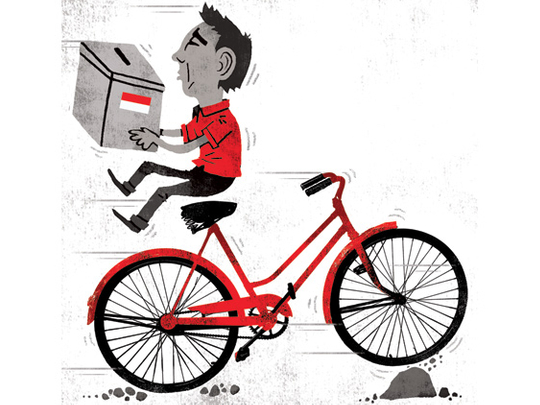
Indonesia has 190 million voters, 479,000 polling booths and an astonishing 4.5 million officials to ensure that its presidential election is both free and fair. The only thing it is lacking is a result. After a process that began with legislative elections in early April, then went through months of campaigning and culminated in the presidential poll of July 9, Indonesians still do not know who will take over as leader from Susilo Bambang Yudhoyono. They will find out for sure only on Tuesday when the official count is announced. Even then, the result could be challenged, a process that may take another month.
The outcome may lead the country in very different directions. Joko Widodo, the popular governor of Jakarta, has strong support among the poor for his perceived honesty and status as a “man of the people”. His opponent, Prabowo Subianto, is a former general and member of the wealthy elite with a penchant for strong nationalist rhetoric. According to most “quick counts” — based on samples taken immediately after polling closed — Widodo won the election with about 52 per cent of the votes. Dashing hopes of a smooth transition, Subianto also claims he won. He is likely to push matters to the wire.
It is a cliche to portray nations as standing at a crossroads, but depending on what happens in the next few weeks, Indonesia could head down one road marked “exemplary democratic transition” or another signposted “electoral fiasco”. The first will be a triumph for those who have taken heart from the country’s apparently smooth transition from authoritarian state to functioning democracy. The second scenario — a protracted crisis or worse, a stolen election — will bolster the view of apologists for authoritarian regimes. If a nation often cited as a model cannot make it, perhaps democracy really is a luxury poor countries cannot afford. How Indonesia handles its electoral stand-off is thus being monitored closely across the region.
Mu Sochua, a prominent member of the Cambodian opposition, cites Indonesia as a model for how an authoritarian state can become a liberal democracy. In her own country, 30 years after Hun Sen was installed as Cambodia’s prime minister following the horror of the Pol Pot years, he is still in the job. Now opposition MPs, including Mu Sochua, are refusing to take up their seats in parliament nearly a year after elections they say were stolen. In Afghanistan, too, elections have not produced a decisive result. The US had to bang heads together to get the two presidential candidates to agree to a recount after both claimed victory following last month’s run-off. In Thailand, some sections of society have refused to accept the results of successive elections. In May, the country’s military “solved” this particular electoral dilemma in the way it knows best: Through a coup.
A common theme is that, beyond periodic voting, democracy is about functioning institutions. Indonesia’s does not exactly inspire confidence, though. The former head of the constitutional court, the ultimate arbiter of the electoral process, was last month sentenced to life in jail — for vote rigging. The best that can be said for this blemish on the court’s reputation is that it will want to be seen as squeaky clean in the event it must decide who is the next president. To reduce the risk of fraud, the election commission has uploaded almost all of the result forms from each polling station to a publicly accessible website. Technology can never be a substitute for functioning institutions, but it can be a tool to help create them. Edward Aspinall, a specialist on southeast Asian politics at the Australian National University, predicts Indonesia will eventually come through what has been a test of fire.
Beyond the mechanics of counting votes, elections do not work if they are seen as merely a means of choosing between one thief and another. Too often, elected officials in developing countries are paid a grossly inadequate wage. The implicit bargain is that they will make up their salary by extracting rent. Indonesia does not fare well in this regard. According to a poll conducted by Asian Barometer, a research organisation, precisely zero respondents thought the government was doing an “effective job” in rooting out corruption. (Almost 14 per cent thought it was “doing its best” and 40 per cent that it was “not doing much”.) If the public assumes elections are about doling out goodies, the entire legitimacy of democracy is jeopardised.
Almost miraculously, despite all this, support for democracy in Indonesia remains exceptionally strong. Asian Barometer found that 76 per cent of Indonesians thought elections offered a real choice. More than 80 per cent said the 2009 election, which returned Yudhoyono to a second term, was either “completely free and fair” or “free and fair with minor problems”. Given all of the obvious problems, one could dismiss such belief as naive. All the more important then that such touching faith in the instruments of democracy is rewarded with a clean result.
— Financial Times









